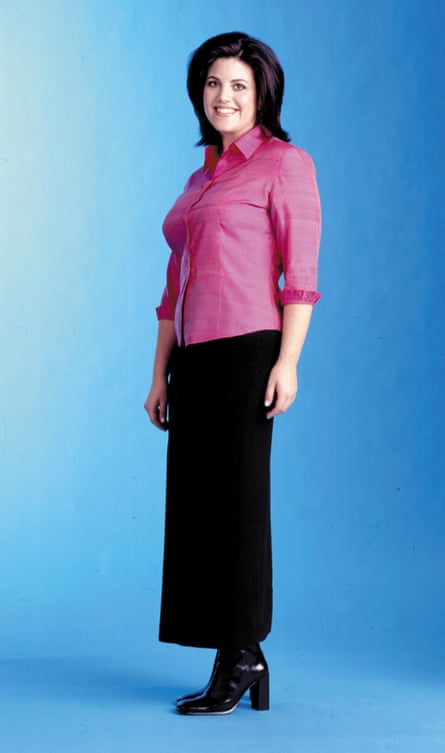
I was 10 years old when I learned what bodies should – and shouldn’t – look like. Kirstie Alley was on TV, pointing to a paparazzi photo of what her pudgy stomach looked like before she tried Jenny Craig’s weight loss program. But after testing the brand’s signature mix of dieting, meal plans and personal coaching, Alley showed off her new physique: smooth, with no bumps peeking out from her body-con dress.
Sitting cross-legged in front of the television, I peered down at my own stomach. It felt soft when I poked it. I decided it could be slimmer. That night, I went upstairs to my mother’s scale and weighed myself. It was the first time I ever knew my weight.
Jenny Craig was not the first weight-loss program to take America by storm, but it was the most ubiquitous in the 1990s and 2000s. It billed itself as a community, with personal consultants who helped clients achieve the kind of dramatic transformations seen among spokespeople like Alley, Valerie Bertinelli, Queen Latifah and Jason Alexander. (Though viewers would have been wise to lower their expectations. Alley may have lost 75lb through Jenny Craig, but the ad’s fine print reminded us that those “results are not typical”.) In 2003, Jenny Craig’s revenue totaled $280m.
The company, founded by its eponymous weight loss guru and her husband in 1983, owned more than 600 centers across the US, Canada, Australia and New Zealand. Clients bought low-calorie prepackaged meals and one-on-one coaching to help them reach their goals. But this week, Jenny Craig announced that it plans to close after 40 years in business.
Eulogies placed blame on two opposing trends. The Washington Post suggested Jenny Craig ended because of the body-positivity movement and a rejection of diet culture – last year, Bertinelli even apologized for being the face of Jenny Craig. No, said CNN, actually, it’s because buzzy weight loss drugs like Ozempic and Wegovy are changing the weight loss game.
So which is it? Only the naive could believe that the fashion industry’s tepid embrace of body positivity killed dieting. Thinness will always be fetishized by fashion, even as it takes performative steps to diversify. And castings of ultra-thin models have recently surged on runways after a few years of better plus-size representation.
But I do believe that the type of dieting Jenny Craig sold, which was loud and obvious and indiscreet, may be off-putting these days. The brand’s slogan, screeched by Alley at the end of each ad, was the rather desperate “Have you called Jenny yet?!”
And if that wasn’t blunt enough, consider this intro from one of Alley’s spots: “Hey! You’re chubby, too. Let’s lose weight together.”
Advertisements that did not feature former television stars were even more confessional: “real women” shared their stories of humiliation at seeing their bodies in family photos, or struggling to fit into a wedding dress.
In the early aughts, dieting was an unquestionable part of life. The culture was steeped in skinniness. Magazines had yet to be called out for airbrushing covers. Tyra Banks humiliated plus-size contestants on America’s Next Top Model in the name of building character. Movies like Shallow Hal treated weight as a punchline. Fatness was seen as failure.
So if you had to lose weight, Jenny Craig would try to make it fun. What’s more, clients didn’t have to “give up” the things they enjoyed to get in on the program, which nixed carb-counting for a more curated plan tailored to their preferred food choices and level of activity.
“I was a size 18 carb-craving diva,” one woman said in a 2004 television commercial. “I’m still a carb-loving diva, just 48 pounds thinner.”
Do dieters need to reveal all of that today? Not if they can afford to. Drugs like Ozempic, which are essentially very expensive appetite suppressants, allow the rich and famous to lose weight via weekly jabs. Celebrities don’t admit to it, but everyone is on it. That’s the quiet luxury that comes with this new class of drugs. Brands like Jenny Craig, which rely on a bit of visibility, cannot compete.
And how will the rest of us afford to lose weight? Subscription-based, calorie counting apps like Noom and My Fitness Pal are cheaper than Jenny Craig’s model, and very popular for young people who would rather track their weight loss entirely on their phones.
Jenny Craig’s demise doesn’t mean we’re moving towards body acceptance. And while I am happy for anyone it helped during its four decades of existence, I’ll only remember it as the first institution that told me to feel bad about myself. After learning how much I weighed that night at 10 years old, I haven’t gone a day without stepping on a scale.



